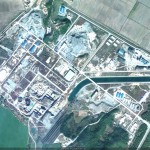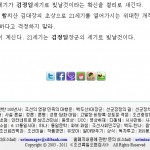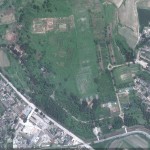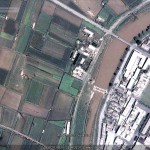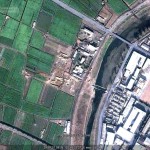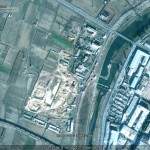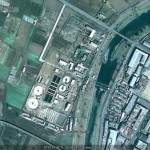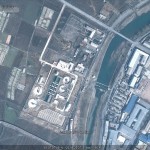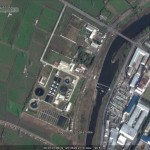UPDATE 3 (2011-11-15): NK News has more on the unofficial Air Koryo Facebook Page here.
UPDATE 2 (2011-11-12): The unofficial Air Koryo Facebook Page posted the following comment in response to a question about service to Kuwait (thanks to a reader for the pointer):
It is not canceled. It is restricted bookings just like Moscow services.
The comment is followed by this one:
Kwang-tae Kim: I am a reporter of South Korea’s Yonhap news agency. Can u elaborate on why bookings are restricted and when bookings will be resumed? Some people speculated that it could be North Korea’s attempt to prevent the news of popular uprisings in the Arab world from reaching North Korea. Do u have any comment? Thanks
UPDATE 1 (2011-11-12): According to Yonhap:
North Korea’s flag carrier has canceled an air route to Kuwait, Airline Route blog says, in what could be Pyongyang’s latest attempt to prevent the news of popular uprisings in the Arab world from reaching the isolated country.
The move came less than six months after Air Koryo started a weekly direct flight service between Pyongyang and Kuwait City, Airline Route said Monday on its Web site, citing the carrier’s planned winter operation.
In late May, Air Koryo announced the service on its Facebook page, adding that a large number of North Koreans work in the Middle East.
The North’s airline has not yet commented on the reported cancellation of the service on its Facebook page, which was last updated late in October.
Here is the source information for this story:
As per 07NOV11 GDS timetable display, the following is North Korean flag carrier Air Koryo’s planned Winter 2011/12 operation.
Pyongyang – Bangkok
JS153 FNJ1020 – 1420BKK T20 4
JS154 BKK1220 – 2000FNJ T20 4
Pyongyang – Beijing
JS151 FNJ0900 – 0955PEK T20 26
JS251 FNJ1030 – 1130PEK T20 4
JS152 PEK1255 – 1600FNJ T20 26
JS252 PEK1405 – 1710FNJ T20 4
Pyongyang – Kuala Lumpur
JS159 FNJ1340 – 2000KUL T20 14
JS160 KUL2300 – 0730+1FNJ T20 25
Pyongyang – Kuwait Service Cancelled
Pyongyang – Shenyang
JS155 FNJ1200 – 1210SHE T20 36
JS156 SHE1500 – 1710FNJ T20 36
Pyongyang – Vladivostok
JS271 FNJ0830 – 1220VVO T20 5
JS272 VVO1830 – 1820FNJ T20 5
On an similar note, according to the Air Koryo Facebook page (Oct 28):
Air Koryo 2012 European Charters:
We are glad to announce to our European Union fans that Air Koryo will indeed be operating a seasonal service to Germany with a service from Pyongyang’s Sunan to Berlin’s Schonefeld airport. The serivces will operate from April till May 2012 and will operate weekly. Service dates are currently listing as first departure of 12 April and final flight 3 May. All service will be operated by Tupolev Tu-204 aircraft.
More information including timetable and official route i.e. non-stop or one stop will be released soon.
…
The flight will operate via Moscow Sheremetyevo Airport, the flights will operate on alternate dates to the weekly direct flight to Moscow. Note that the flight to Berlin will be a direct flight, and not non-stop. The service will be operated by the larger Tu-204-100E
ORIGINAL POST (2011-6-1): According to an online aviation forum:
Air Koryo are opening a new route to Kuwait City, to operate once a week.
Outbound (Tue, day 2): JS 161 FNJ 1800 / KWI 0110+1
Return (Wed, day 3): JS 162 KWI 1400 / FNJ 0500+1
Aircraft: Tupolev Tu-204-300
From the schedule it is obvious that the aircraft parks for thirteen hours, enabling the crew to have an eight hour sleep before operating the machine back to Pyongyang.
The Tu-204-300 is the long haul, “SP” version of the 204, and the Air Koryo machine (they have just the one, plus a pair of regular -200s) is the only airframe of the type exported from Russia. It is also used on flights to Moscow, plus Beijing of course.
It is an interesting choice of route out of the hermit kingdom. The airline says, “We are glad to announce Air Koryo has started serving Kuwait City, the capital of the Arabic nation of Kuwait, with a weekly Tupolev Tu-204-300 serivce. The route offers many connections onto the Middle East, Iran, Africa and offers business links in the region.”
A reader in the comments points out that one of the DPRK’s new Tupolevs was in Kuwait on March 25, 2011 at 10:54 CET, so the route may already be in use.
In April 2011, Air Koryo announced regular service to Kuala Lumpur.
UPDATE: This was apparently picked up by VOA and Yonhap.

